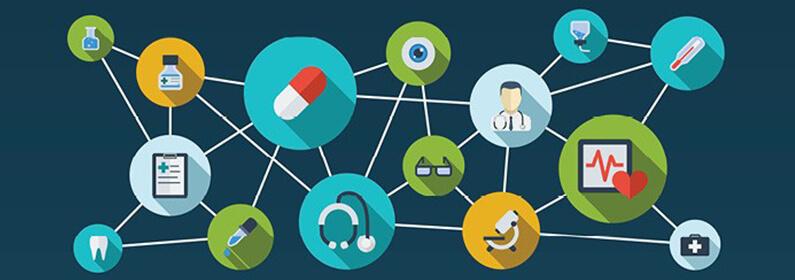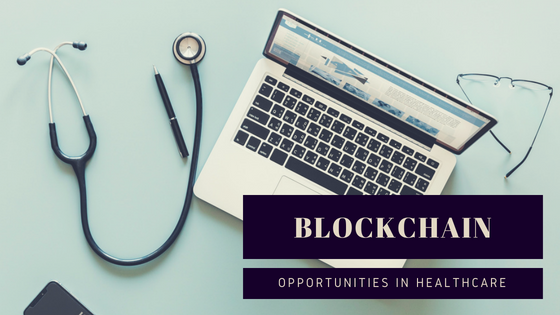How IoT is revolutionizing the healthcare industry
The Internet of Things (IoT) is changing the working pattern institutional values of many industries and sectors. Service devices which are powered...


Over the past 20 years, we have seen how innovation has transformed and has been able to generate disruptions in almost every industry. In almost all cases these changes came from actors outside the traditional environment. Wouldn't it have been logical to think that Airbnb was going to be created by Hilton, who had the greatest knowledge of the industry? Or that Instagram was going to be founded by Kodak?
However, the creators of this type of disruption have been made by characters outside the industry environment, basically because it was they who understood the problem from the client's perspective and not from the organization.
One of the industries that are owed to these disruptions is health. Not only because someone has not appeared who can revolutionize how these services are delivered, but because the processes still maintain the same structure for years - where the experience towards the client depends on the capacity of the organization - and because Services are delivered reactively and not proactively.
Currently, when you visit a clinic, the time that passes from when you discover the need to go until you solve the need, we realize how clinics relate to patients is not very close and efficient. Wouldn't it be more logical that the clinics instead of charging us for healing us, would charge us for not getting sick?
It is certainly a way of thinking that would mean a change not only in the processes, systems and business models of the clinics but also in the culture and ways of working of doctors. The fact that to achieve this we have to change the way doctors work indicates that the task is even more difficult, especially because of the perception that there are doctors who like to work in their way.
Contrary to what one might believe, it is quite feasible to generate a change in the way of “delivering” health, and that this change comes internally from the same clinics or traditional hospitals. However, there is something that is preventing it and it is related to how entrepreneurial minds are capable of generating ideas and solutions from the client's perspective and for disease prevention but integrating the ideas and experience of doctors. They are the face of the clinic towards the patient, and therefore the solution should be created through their knowledge.
In the United States, a former Google employee, Adrian Aoun, created Forward so that people don't have to go to the doctor. Through personalized service and monitoring with smart accessories (such as an Apple Watch for example), they understand the behavior of each client's body and with predictive models of artificial intelligence alert people at risk of getting sick, and schedule them to a consultation for preventive treatment. Despite the success of the project, he has received innumerable criticisms, mainly from doctors who have found certain shortcomings in his model. What is missing to be able to integrate the medical world and the business world so that we begin to experience a true disruption of the industry?
Watson, the artificial intelligence system developed by IBM, became famous in 2011 by beating human contestants on the American television program Jeopardy! His ability to learn has made him a supercomputer with applications in very diverse fields. And medicine is one of the areas in which your skills are being harnessed. Watson already advises doctors who work in hospitals in the US, India, Mexico, Thailand, Slovakia or Korea.
Did you know that, on average, a person generates during his life data about his health with which 300 million books could be filled? "It is an impossible amount of data to be assimilated by medical experts," said Juan Carlos Sánchez Rosado, head of IBM Watson Health, the division of this AI system focused on health applications.
One of the branches is Watson for Oncology. The specialists of the Sloan-Kettering Memorial in the US have trained him so that he can analyze medical records and help the doctor define more personalized treatments based on scientific studies and patient records. And they have succeeded by feeding it with gigantic amounts of information: 300 medical journals, hundreds of books and more than 15 million texts. Thanks to its natural language processing capacity, the supercomputer ingests that mountain of data and makes sense of all that information.
Currently, Watson is trained to detect 13 types of cancer and its technology has reached 45,000 patients worldwide. The results are encouraging, according to some studies on their conclusions. An investigation carried out by Manipal Hospital in Bangalore, in India, and published at the beginning of 2018 in Annals of Oncology, indicated that Watson's breast cancer treatment proposals coincided with those of the multidisciplinary tumor committee of that hospital in 93% of cases. However, according to an IBM spokeswoman, "Watson does not make diagnoses. It offers specialists with different treatment possibilities. It is always a doctor who makes the final decision."
Juan José Cerrolaza, a researcher at Imperial College in London, believes that it is not an exaggeration to speak of a "boom in artificial intelligence", a field in which the last three or four years have advanced exponentially due, above all, to Two factors: access to large amounts of data and development in computing, that is, in hardware capacity . "This box has been opened where there are a lot of possibilities, and there is great emotion for everything that can be done. Once the excitement is over, let's see what is viable and what is not."
What is clear about Cerrolaza is that "the future of medical imaging and AI happens because doctors and engineers go hand in hand". That collaboration, he says, is crucial. The tendency now is to develop counseling tools and offer them possibilities, and for the doctor to make the final decision.
The same is echoed by Miguel Ángel Manez, an economist specializing in health management, who believes that AI should never replace the doctor. "It will help to solve complex situations but the final decision must always correspond to the health professional," says Manez, who works in the Knowledge Management and Professional Development Unit of the Health Service.
In addition to improving the detection and diagnosis of many pathologies, AI will reduce the number of medical errors and make possible the advancement of areas such as Epidemiology or Public Health. However, its implementation will also lead to significant ethical challenges; Challenges to be addressed before assuming this technological innovation with guarantees. You cannot have "blind confidence" in technology and forget that "it is a support tool whose results should be reviewed," adds Manez.
He agrees with his point of view a team from the Centre for Biomedical Ethics at Stanford University (USA), who has just published an article on the subject in the medical journal The New England Journal of Medicine. Keep in mind, write the scientists led by David Magnus, that algorithms can also reproduce the biases that exist in human decision making. There are already examples of this in fields outside of medicine, such as the legal field: "Programs designed to help judges in sentencing when predicting the risk of the accused of recidivism have shown a disturbing propensity to racial discrimination".
On the other hand, what happens if this technology is programmed for unethical purposes if the algorithm favors economic benefit instead of the quality of healthcare?
Doctors should be aware of how artificial intelligence works, what are its sources and what are its possible biases, to make a critical reading of their contribution, they add. Also, the implementation of these tools must ensure that the confidentiality of the information is respected, as well as the guarantees contemplated in the doctor-patient relationship.

The Internet of Things (IoT) is changing the working pattern institutional values of many industries and sectors. Service devices which are powered...

Blockchain technology has evolved significantly since the first decentralized peer-to-peer electronic cash network, Bitcoin, was launched in 2008....

The blockchain is ever-growing listicle structure of block records linked via cryptography. A blockchain is a distributed, decentralized digital...